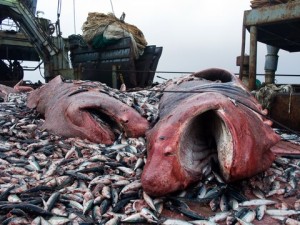“It’s a real shame”, says Dr. Liz Slooten, the World’s leading scientist on Maui’s dolphins. “This was New Zealand’s chance to stand up and be a leader on the protection of endangered species… instead, we’re just business as usual. I fear it spells the death knell for the Maui’s”. There is a hint of resignation in her voice, the first time I’ve heard it from this extraordinary lady.
New Zealand has just voted against the IUCN motion aimed at protecting the last 55 remaining Maui’s dolphins. This body, a combination of Governments, Scientists and NGOs, had proposed banning gill nets from a large area where the final bastion of Maui’s dolphins remain. Sadly, out of 578 votes cast, New Zealand was the only country to vote against the motion. It highlights the challenges conservationists face. Often the one person or organisation you must have on board is also the one who opposes you… And more often that not, it is a government.
Thankfully however, while the New Zealand government may be increasingly negligent in their treatment of endangered species, many other governments are making great progress, and there is no better demonstration of this than the recent developments on protecting shark. A great contributor to this harks back to 2007, when Rob Stewart’s epic film Sharkwater was first released. Like most conservation documentaries, it didn’t break any box office records. But it did really resonate with conservationists, and for some, myself included, it was the first time we’d ever heard about sharks really being under threat. At the time, shark finning had become endemic throughout most tropic and sub-tropical regions, and today it is even worse – Thanks largely to China’s seemingly insatiable demand for shark fin soup. But in the last couple of years there have been small glimmers of hope, and today it does actually feel as though some positive headway is being made.
Many cities around the world have introduced bans on the sale of shark fin soup. In some cases it has been via municipal legislation, while in others it has been driven voluntarily by local activists. US States have been pressured into action – Hawaii, Washington, Oregon, California and Guam have all banned the importation of shark fin, while many other states have similar legislation pending.
The most promising initiatives however have come from Pacific Islands. A couple days ago, Kosrae, one of the Federated States of Micronesia, passed their shark sanctuary laws, and this will form part of a 2.9 million square kilometre Regional Shark Protected Area. Included in the full sanctuary will be waters in Guam, Palau, Yap, Chuuk, Pohnpei, Northern Mariana Islands and the Marshall Islands – And the result will be by far the largest area of its type in the world.
The thing that has really surprised me though is the number of countries where progress has been made. Change has not been effected by one group, but rather by many organisations and governments all working away at the problem. People haven’t needed to offer their lives in sacrifice, there haven’t been huge demonstrations, and there haven’t been brawls and abuse between opposing sides. Rather, it has been a rational debate by groups using a combination of science, economics and logic, used collectively to convince governments to introduce shark friendly legislation. There have also been some outstanding leaders in governments backing the legislative changes.
Progress has also been made in China. NBA Player Yao Ming featured in an anti-shark finning video urging Chinese people to stop eating shark fin soup. Many Asian restaurants, airlines and hotels, through western pressure, have also stopped serving the delicacy. Admittedly this is a drop in the ocean, excuse the pun, but small steps forward are being made.
There are now so many organisations working to protect sharks today. Some of them I’m well aware of – Shark Savers, Pew, WildAid, Humane Society International, WWF Hong Kong and social networking groups like the Global Shark Conservation Initiative for example. But a quick scan on the internet reveals countless more – most of them unheralded, running on oily rags, and yet all contributing to this growing momentum to protect the Ocean’s apex predators.
Sharks in fact have become fashionable. Or are about to. And it does make me quietly optimistic about their future. There is just so much good work happening in so many areas. Sure there remains a mountain of work to do. In some areas sharks will be driven to local extinction, and there remain serious and valid concerns over man’s rapid depletion of the myriad of species sharks predate upon.
But right now sharks are getting some loving. And it is good to see. Conservationists are often seen as negative. By nature we tend to bitch and moan, and in many ways that is our job. At the same time, we should also celebrate our successes. The war is far from over for sharks, but it is sure nice to see so many groups winning a few battles.
Tragically, the same of cannot be said for the Maui’s dolphins. Despite there being just 55 left, the New Zealand government refuses to introduce the gill and trawl net ban needed to save the species. We should all celebrate successes like new Shark Sanctuaries, because we will certainly be also grieving over some bitter defeats in coming years.
